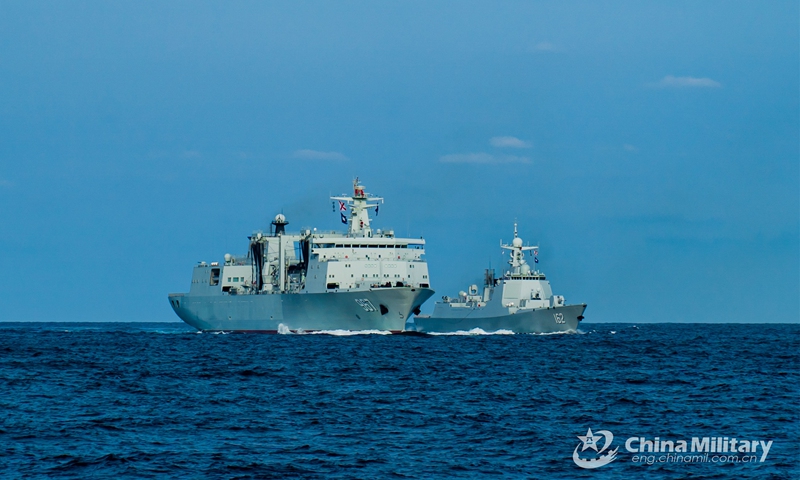Modern capitalism has deep religion roots
Andrew Sheng: My view is that the real crisis with the liberal democratic order is not whether autocracy is on the rise, but whether the liberal order is fit for purpose in a world threatened with existential climate change. After more than 40 years of liberal order, the world has had the highest social inequality, accelerating climate change, rising seas and natural disasters and failing governance everywhere.
American Bible vs Chinese Dao De Jing
`
WRITING in Foreign Affairs magazine, Professors Alexander Cooley and Daniel Nexon argue that the core crisis lies in illiberalism on the rise. Namely, the contest of the century is not simply US-China, but liberal democracy versus autocracy.
`
This week, US Secretary of State Anthony Blinken warned the recent Quad meeting in Australia that “China wants to dominate the world.”
`
On the other side, the Russians claim that it is the North Atlantic Treaty Organisation that is expanding eastwards, whilst China accuses the United States of Cold War mentality in trying to contain China and stir up trouble over Xinjiang, Tibet, Hong Kong and Taiwan.
`
The American foreign policy community has always lamented that despite opening up economically, the Chinese did not convert politically to the liberal democratic model, thus justifying American sanctions against China.
`
By not converting to American ideals, the next step is to contain these “revisionist” powers.
`
This “convert or contain” approach smacks of fundamentalist Christian beliefs to either evangelise or defeat the non-believers.
`
Modern capitalism has deep religious roots.
`
German sociologist Max Weber was first to pronounce that the Spirit of Capitalism came from the Protestant Ethic.
`
Even though capitalism existed in ancient China, India and other cultures, its modern ethos was based on Protestant Christianity that revolted against the authority of the Roman Catholic Church and 16th century Catholic monarchs.
`
The Puritan streak in American capitalism favoured hard work and acquisition of assets, not because it was greed, but because it was done for the glory of God.
`
Capitalism greed is, therefore, not only rational and modern, but founded on religious ethics.
`
To be rich is to be glorious (for God). Forget about the fact that wealth may have been founded on exploitation of other human beings and mother nature.
`
International relations theorist Alexander Wendt argued that modern social science (including international relations) is founded on the key assumptions of materialism (reality is physical); reductionism (complexity can be reduced to simplicity); things behave in law-like ways (determinism); there is cause and effect (mechanism); and there exists objective truth (perfect objectivity).
`
These assumptions are all embedded in American foreign policy of rational liberal democracy ideals, rule-based order; beliefs in individual human rights and in God that are enshrined in the US Constitution and coins – In God we Trust.
`
In contrast, Chinese statecraft is founded on the 10th century BC I Ching (Book of Changes) and the 4th century BC Dao Dejing (the Book of the Way (Dao) and Virtue or De). Unlike the Bible, the most translated book in the world, which begins with “In the beginning God created the heaven and the earth”, the Dao (the second most translated book) begins with “The Dao that can be expressed is not the eternal Dao”.
`
In other words, the Dao challenges almost all the assumptions that lie in modern social science: that no rule is forever, rights are balanced with obligations, good is embedded with evil, and nothing can be taken for granted.
`
For Christians, God is perfect and man’s job is to seek perfection. According to the Dao, there is no perfection except constant change.
`
Life evolves through the interaction of complexity and its parts. The individual (a rational man in economics with rights) is part of a collective and therefore has obligations to society and nature.
`
There is no absolute good or perfect information, since Daoists believe that good and evil exist together in all beings and everything is relative, changing in cycles of time.
`
China’s dual circulation policy can easily be understood as coming from Daoist philosophy.
`
One example of the contradiction between liberal democrats and autocracy is the issue of legitimacy, often without self-reflection on their own record.
`
The latest Edelman Trust Barometer 2022 showed that based on samples taken across 27 countries, China has the highest trust amongst the general population (index of 83), compared with the United States (43) and the UK (44), with the US Trust Index declining 10 points since 2017.
`
Thus, the crisis in global order is not one of ideology, but very fundamental worldviews as to whether the world is unipolar and mono-culture, or poly-centric and where diverse systems and beliefs can co-exist and co-create with each other.
`
My view is that the real crisis with the liberal democratic order is not whether autocracy is on the rise, but whether the liberal order is fit for purpose in a world threatened with existential climate change.
`
After more than 40 years of liberal order, the world has had the highest social inequality, accelerating climate change, rising seas and natural disasters and failing governance everywhere.
`
The environmentalist say that we have less than three decades (to 2050) to get to net-zero on carbon emissions.
`
The demands on society to change are huge.
`
Democratic governments facing elections that cost more and more to campaign in order to win find it harder and harder to take tough structural adjustments that are necessary to achieve both carbon neutrality and social equality.
`
As Cooley and Nexon themselves admit, “in their current form, liberal institutions cannot stem the rising illiberal tide... Any attempt to grapple with this crisis will require policy decisions that are clearly illiberal or necessitate a new version of liberal order.”
`
The recognition that you may have to do bad things to get good results is at the heart of the difference between the Bible and the Dao. The simple, naive version is that good things can only be achieved by righteous good politicians. The Dao recognises realistically that there is no gain without pain and no perfect leaders.
`
For liberal democrats, the idealist search for the moral best has ended up with electoral promises remaining promises, no delivery of better jobs, human well-being and fairer social and ecological justice.
`
Whither global order?
`
For Christians, let us pray. Daoists will dialectically wait for more changes to come.
`
by Andrew Sheng writes on global issues from an Asian perspective. The views expressed here are the writer’s own.
By Tan Sri Andrew Sheng (born 1946) is Hong Kong-based Malaysian Chinese banker, academic and commentator. He started his career as an accountant and is now a distinguished fellow of Fung Global Institute, a global think tank based in Hong Kong.[1] He served as chairman of the Hong Kong Sec
Source link
Related
COMPARATIVE STUDY OF DAO DE JING AND THE BIBLE ...
The Comparison of the Holy Bible the Dao De Jing - PapersOwl
Dao De Jing - New World Encyclopedia
Why Christians Need to Read the Tao Te Ching - Amazon.com
Related posts:
Moral vacuum at the heart of modernity, now embodied in US laws!
` ` MAN and nature are running out of time. That’s the core message of the UN Inter-governmental Panel on Climate Change ...












